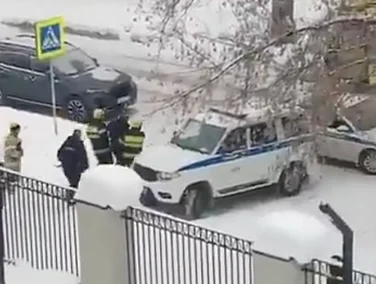In a startling development, authorities have apprehended six Colombian individuals suspected of involvement in the tragic killing of Ecuadorian presidential candidate Fernando Villavicencio. The incident occurred as Villavicencio was departing a campaign event in the capital city of Quito, sending shockwaves through the nation.
Adding to the complexity of the situation, a seventh suspect, also of Colombian nationality, met his demise following a confrontation with law enforcement. Interior Minister Juan Zapata, addressing the heinous act, emphasized that a comprehensive investigation was underway to unravel the motives and individuals behind this abhorrent crime.
The detainees, identified as Andres M, Jose N, Eddy G, Camilo R, Jules C, and Jhon Rodriguez, were taken into custody during a police operation that yielded a cache of weaponry, including firearms, grenades, and stolen vehicles, casting a disturbing light on the extent of their activities.
Fernando Villavicencio, a prominent advocate against organized crime, had boldly exposed alleged ties between corruption and government officials, making him a significant figure in the political landscape. President Guillermo Lasso condemned the assassination as an attempt to disrupt the upcoming election, vowing that the democratic process would continue as planned.
In an intriguing turn, President Lasso called upon the assistance of U.S. federal agents, including FBI personnel, to aid in the investigation. This international collaboration underscores the gravity of the situation and the determination to bring the perpetrators to justice.
Villavicencio's murder not only exposed the nefarious underbelly of criminal organizations but also triggered a perplexing online showdown. A video circulated on social media wherein masked individuals, armed to the teeth, asserted responsibility for the assassination, claiming affiliation with the group "Los Lobos" (The Wolves), known rivals of "Los Choneros."
However, shortly thereafter, a contradictory video emerged, featuring unmasked men who identified themselves as members of "Los Lobos." This second video vehemently denied any involvement in the assassination and accused their adversaries of attempting to frame them.
Who was Fernando Villavicencio?
Fernando Villavicencio, a former investigative journalist, and activist, met an untimely end. Born on October 11, 1963, he transitioned from his journalistic roots to become a member of Ecuador's National Assembly, a role he held until its recent dissolution.
Villavicencio's bid for presidency under the Movimiento Construye party gained momentum, addressing critical issues of drug trade and gang violence. Despite not being the frontrunner, his candidacy resonated with those seeking an alternative approach. His approach to security was unorthodox yet resolute. He boldly asserted, "In my government, the security forces will not act in response to the actions of criminals, we will act first." This unwavering stance was tragically highlighted when he vowed to pursue criminal leaders just a day before his assassination.
Villavicencio's vision extended to innovative solutions. He proposed a high-security prison in the Amazon to house organized crime leaders, demonstrating his determination to address crime at its core.
Throughout his campaign, Villavicencio faced threats, notably from a faction linked to Mexico's Sinaloa cartel. Defiant, he declared, "Here I am showing my face. I'm not scared of them," a testament to his indomitable spirit. A video even captured him refusing to wear a bulletproof vest, showcasing his unwavering resolve.
Assassination sparks concerns amidst rising crime and unemployment
Ecuador, a once-stable nation in a region marked by historical violence, is now grappling with an alarming surge in criminal activity. The year 2022 witnessed record-breaking levels of homicides and drug seizures, painting a stark picture of a country caught in the crosshairs of international drug trade. With its strategic coastal location between drug-producing regions in Peru and Colombia, Ecuador has emerged as a sought-after territory for criminal organizations, fostering a dangerous alliance between local gangs and global drug traffickers.
The COVID-19 pandemic further exacerbated Ecuador's woes, especially among marginalized communities. Cities like Guayaquil faced overwhelming challenges, with overflowing morgues and a devastating economic downturn. The resulting lack of employment opportunities has inadvertently contributed to the recruitment pool for criminal groups, deepening the crisis.
Disturbing government statistics reveal that less than 40 percent of Ecuadorians actively participating in the workforce enjoy adequate employment, with the majority struggling to meet even the minimum monthly wage of $450. The dire situation prompted more than 822,000 individuals between the ages of 18 and 45 to seek opportunities abroad this year alone. Juanita Goebertus, Americas division director at Human Rights Watch, has linked the recent assassination to Ecuador's ongoing instability, highlighting an alarming 80 percent increase in homicide rates between 2021 and 2022.
The tragic killing of Fernando Villavicencio comes on the heels of another high-profile assassination, that of Agustin Intriago, the mayor of Manta, on July 23. This unsettling trend reflects a broader pattern of rising violence across various sectors. The national police have documented over 5,000 extortion cases in 2022, a number expected to double by the close of 2023.


























